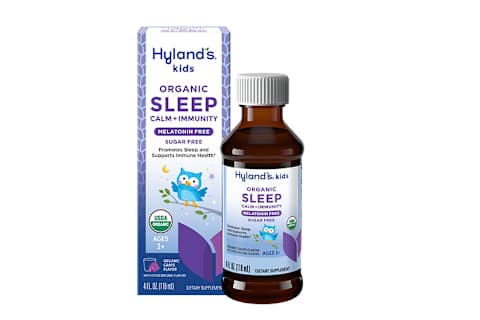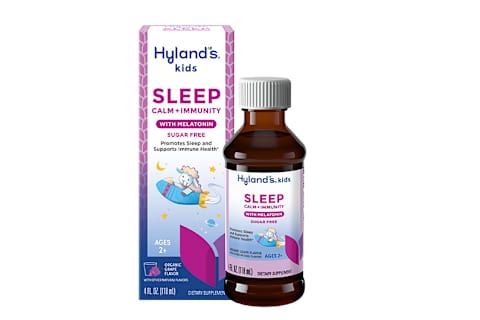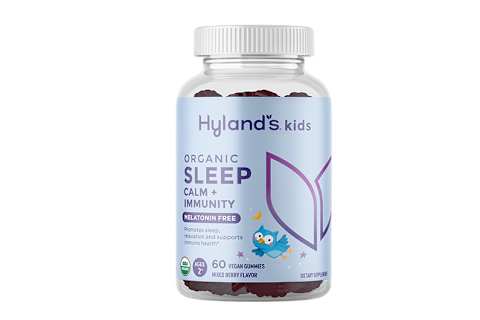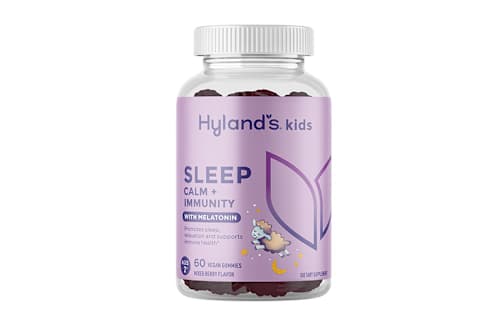Advertisement
A Sleep Expert’s Top Tips For Resetting Your Family’s Sleep Schedule Post-Vacation

Your little ones get more out of travel than memories. Exploring new places can boost cognitive development, build social skills, and teach responsibility. But the excitement of travel comes with one major downfall: a disruption to your child’s sleep routine.
The sleep setbacks start on the first night of your trip, according to pediatric sleep consultant Kelly Murray. Regardless of whether your family stays in the same time zone or sticks to their nap schedule, Murray says you can expect the first night of sleep in a new environment to be inefficient.
“It’s called the first-night effect,” explains Murray. “Only half of your brain will completely shut down because it wants to be aware of the new surroundings to make sure that it's safe before allowing you to fall into a nice deep sleep.”
Most parents also cram their children’s schedule full of activities on vacation, which can exhaust little ones' bodies and kickstart a sleep deficit. Plus, the thrill of being in a new place can cause children to fall asleep later than usual or wake up earlier (and for an unlucky few, it can actually lead to both).
It’s also not uncommon for parents to adjust the nighttime routine to keep the peace on vacation—whether that requires co-sleeping with their children or allowing screentime close to bedtime.
“When you're traveling, all rules go out the window,” says Murray. “You tend to fall into some bad habits that aren't conducive to sleep, and that’s okay. You’re in survival mode.”
While it’s important to give our little ones (and yourself) a little extra grace on vacation, Murray emphasizes the importance of getting back on healthy sleep habits once you return home.
Not sure where to start? Keep reading for Murray’s top tips for helping your family’s sleep schedule get back on track after a big vacation.
Try a sleep supplement.
A sleep aid is a great way to reset your child’s routine after the disruptions of travel (or to help them snooze while still on vacation), and Hyland's kid-friendly sleep supplements are Murray’s top recommendation.*‡
Hyland's gentle and effective formulas never have common allergens or synthetic dyes. Instead they’re supercharged with important minerals and vitamins to promote immunity—such as zinc and vitamin D or C, plus organic elderberry.*
As Murray often encourages clients to explore adding magnesium to their night routine, she has an affinity for Hyland's sugar-free sleep liquids. Launched earlier this year, they combine magnesium with organic botanicals like chamomile, lemon balm, and passion flower to promote rest and relaxation.*‡
When it comes to choosing between either the melatonin or melatonin-free formulas, available in both sugar-free liquids and gummies, Murray recommends taking into account your recent travel plans.
“If you're dealing with a big time zone difference, choosing the supplement with melatonin can be helpful in the short-term to readjust your child's internal body clock,”* she explains.
Get back into routine as soon as possible.
It’s important to jump right back into your night routine as soon as possible after returning home from vacation. Murray says you can expect your child to protest, especially if you’ve been more lenient on vacation.
Enforcing boundaries around bedtime will take extra dedication, but she has a few tips for how to help your kids with the transition. “If they're used to sleeping with you or by you on vacation, you can give them an article of your clothing to sleep with or put a picture from your trip on their nightstand,” says Murray. “You can also do more to help them relax before bedtime, like playing a meditation or reading a few extra books.”
Use light and temperature to help adjust their internal clock.
Jet lag can disrupt your body’s internal clock. Research shows it takes at least one full day for adults to adjust to a one-hour time change, but you don’t need a cross-continental flight to wreak havoc on your sleep.
It’s normal for parents to be more lax about sleep and wake times on vacation (along with other bedtime rules). As a result, you’ll want to take extra precautions to help your kid reset their circadian rhythm. Murray has a few recommendations:
Use light to your advantage
Light is a powerful tool for controlling the body’s internal clock. Along with opting for lamps and minimizing blue light exposure at night—which can falsely make the body think it’s still earlier in the day—Murray suggests paying close attention to how the day starts. Morning light exposure increases cortisol and stops melatonin production, signaling to the body that it’s time to wake up.
Take control of the temperature
Body temperature naturally dips up to 2 degrees Fahrenheit at night. This thermoregulation is controlled by the circadian rhythm and signals to the body that it’s time to start producing melatonin. Taking a warm bath or shower can mimic this natural process by temporarily increasing the core body temperature before it drops.
The takeaway
Between time zone changes, sleep deficits, and disrupted internal clocks, it’s easy for bedtime to become a struggle post-vacation. But with the help of Murray’s tips—and a few servings of Hyland’s gentle and effective sleep supplements—your kids can get back on track.*‡
‡ For occasional sleeplessness.




